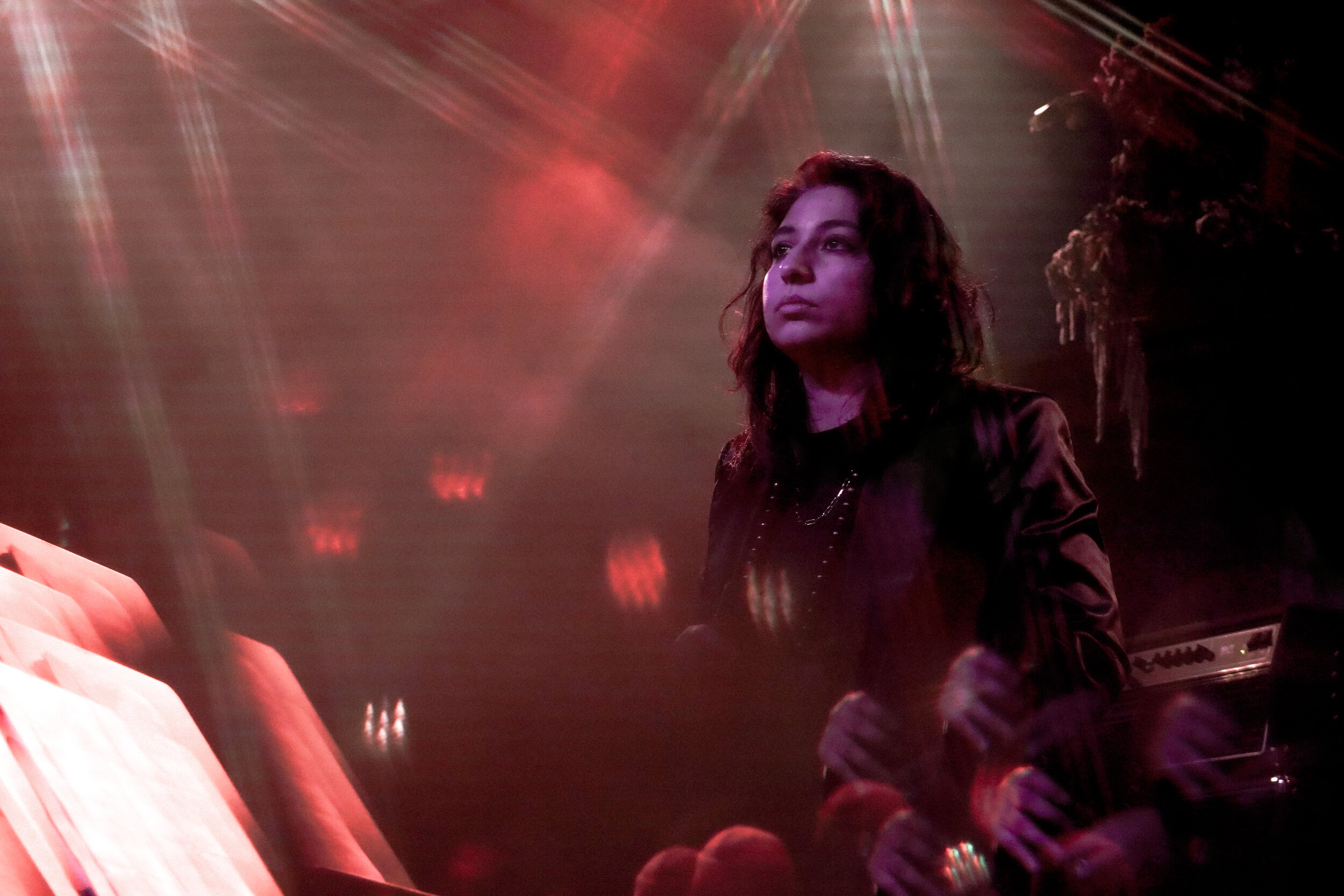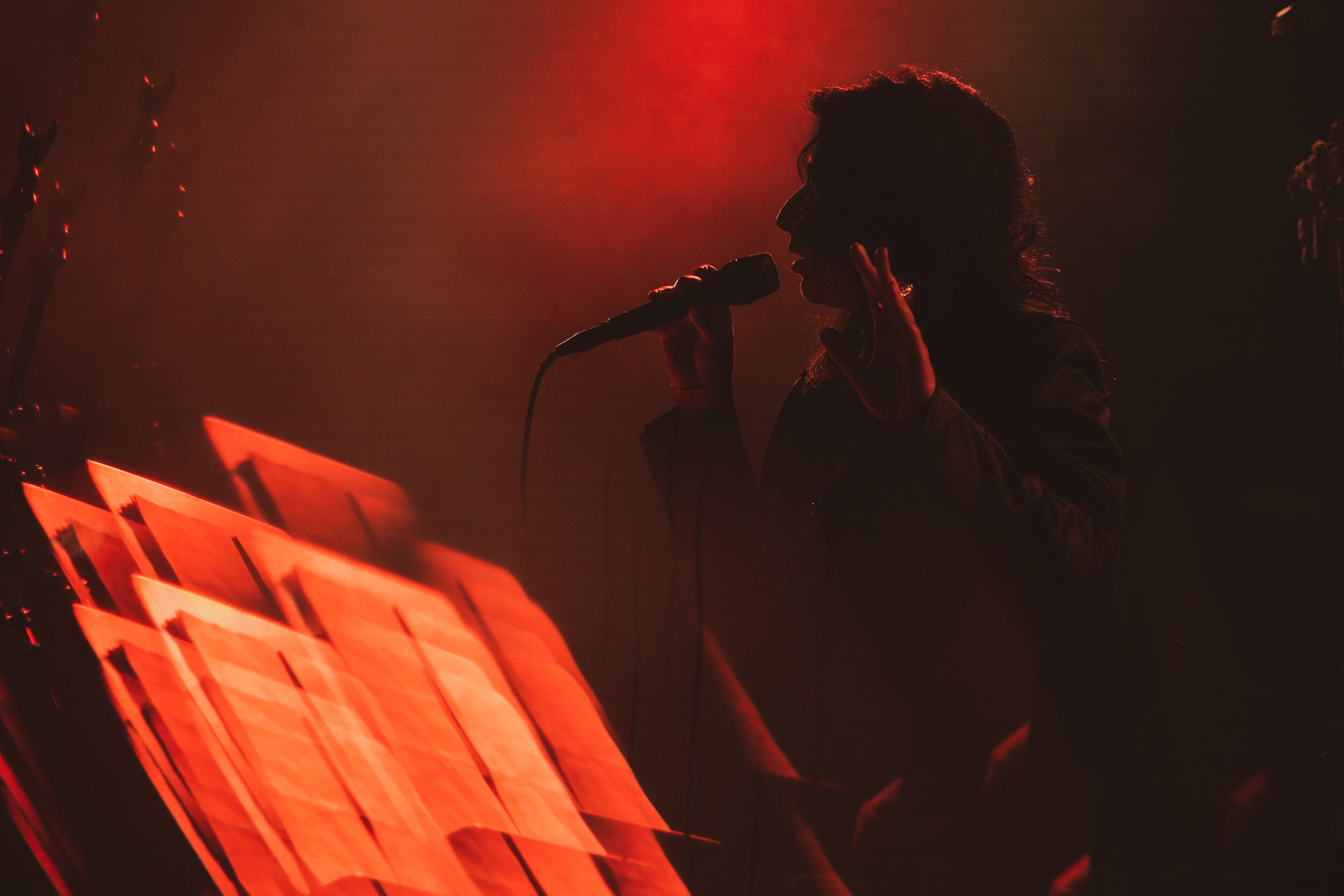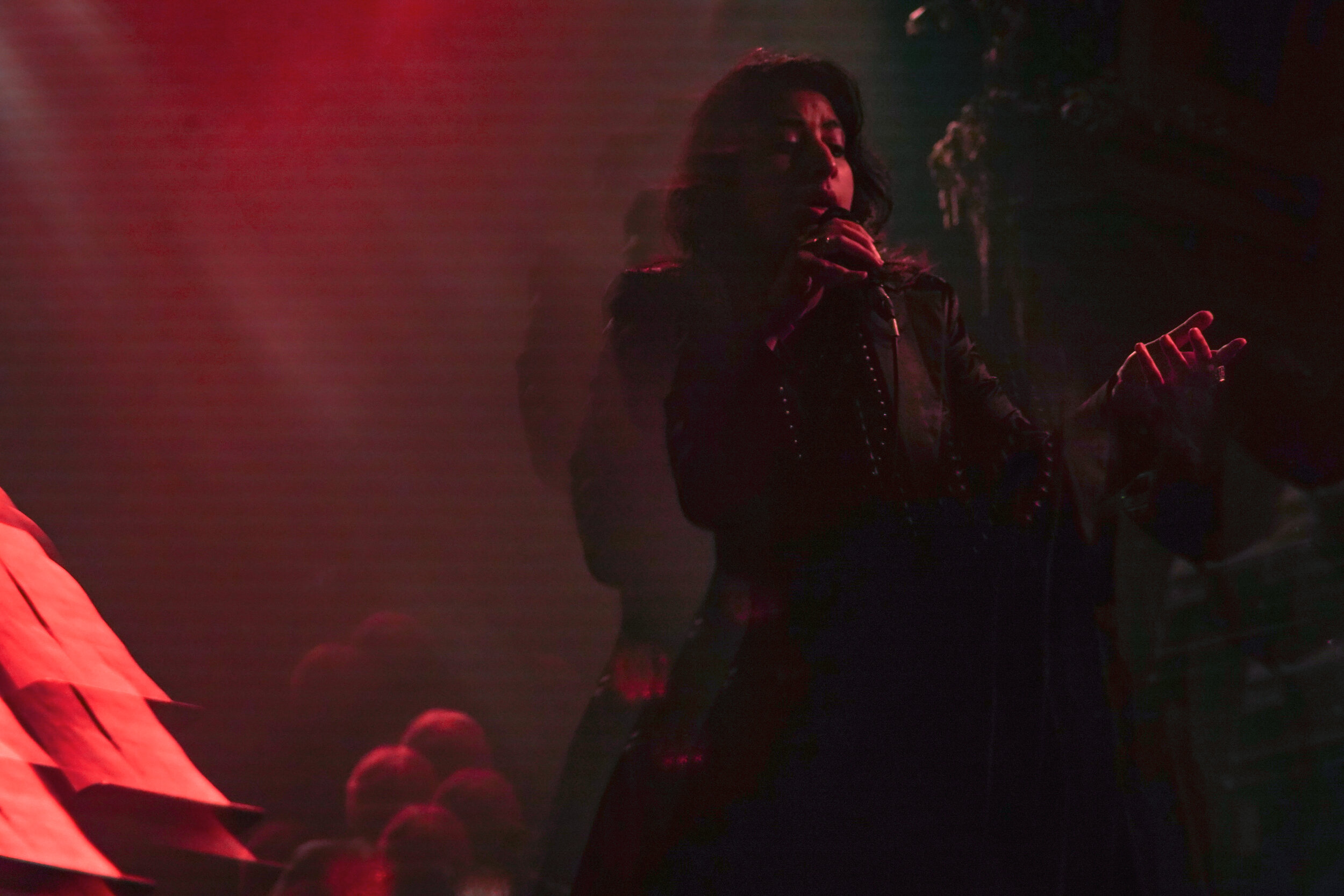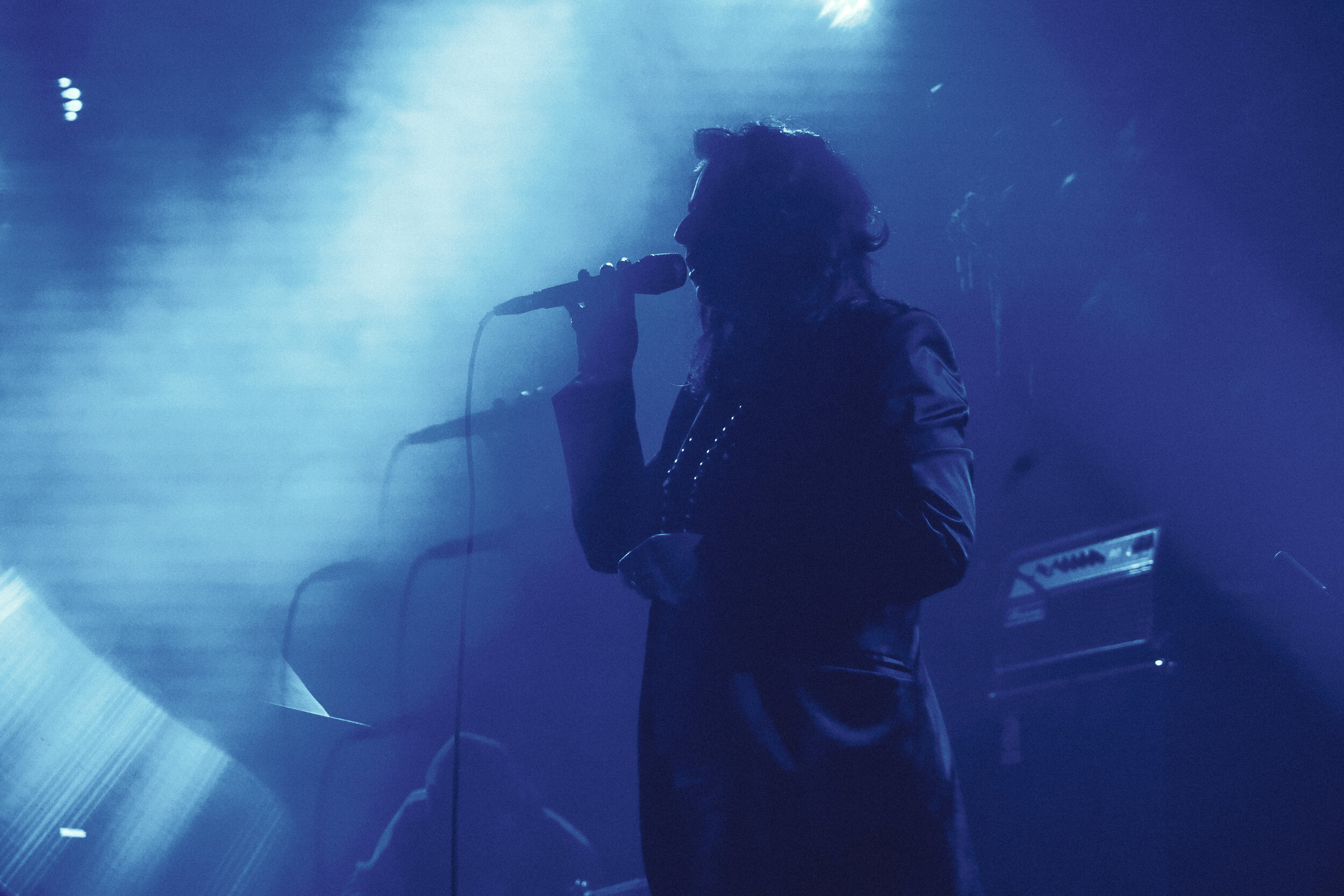Arooj Aftab: Live at the Lodge Room
⤏ IN CONVERSATION WITH G LEONARDO
⤏ PHOTOS BY BETSY MARTINEZ
⤏ LIVE AT THE LODGE ROOM IN HIGHLAND PARK
Ephemeral contemplation best describes Arooj Aftab’s latest work, “Vulture Prince.” A languid trip through ancient poetry, lush and expressive strings, and Arooj’s clear, captivating voice weaving seamlessly throughout. An album that evokes the warm heat of sticky summer nights, a cry to the beautiful, shining moon, and moments perfect for bursting into dance. As we bonded over leaving our day jobs to pursue music fully, she remarked: “Every day you tell yourself that one day, the pieces will fall into place and your art will make sense. Well, is this all of the pieces coming together for me then?”
G LEONARDO: What’s your favorite pick-me-up meal or dessert?
AROOJ AFTAB: Daal, made well — that’s really comforting and healthy. No food comas, always delicious. I tend to make it myself because it’s trash everywhere else — I don’t know what they’re doing because they can’t make the damn thing.
GL: And you’re currently based in Brooklyn?
AA: Yeah, [I moved there] in 2009 after graduating from Berklee.
GL: How do you feel about going back on tour during the pandemic?
AA: I’m so excited for it, but I’m definitely worried about it, too. For everyone’s sake, just be careful. I know it sucks to wear masks inside during live shows. People have been really responsible for our sake, as gigs and tours are a big source of income and emotional stability. As artists, we’ve lost all of this money over the lockdown year and now we’re back in front of all these people without raising our rates. And we’re put in a risky situation! But I’m glad there’s a system in place, and that there’s autonomy.
I’m hitting four venues on the West Coast this week — next week? I’m not sure.
GL: Time doesn’t exist right now, I understand — but I’m very excited to see you live! What’s your current lineup right now?
AA: Typically I play with a band of six or so musicians. Because a lot of the venue capacities have downsized due to the pandemic, my lineup will change — sometimes a quartet, maybe even a trio — but it’s always some iteration of the full band.
GL: Do you typically play with an instrument when you perform, or do you just sing?
AA: Sometimes I play with a synth, but I’m going to go full diva for this tour and just sing.
“as a female singer, there is a degree of expectation for me to front the band; everyone else can have a moment of privacy on stage, but I could be chilling with my whiskey on stage while someone is soloing, and everyone is still watching me.”
GL: Not a diva move at all! The voice is very much an instrument! I feel as if POC musicians like us are so afraid to take up space, so we see these things as being a diva move.
AA: Right, not at all! Because this is my project and I’m the singer, everyone is always looking at me, even if someone else might be fucking up. I feel that especially as a female singer, there is a degree of expectation for me to front the band; everyone else can have a moment of privacy on stage, but I could be chilling with my whiskey on stage while someone is soloing, and everyone is still watching me — like, c’mon! It’s not even my turn right now!
GL: 100% understand.
AA: It’s not diva — we are actually doing work. But because of being watched so closely on stage, I now know how to drink water gracefully.
GL: Speaking of grace, Vulture Prince is incredible! What’s your creative process with writing music look like?
AA: There’s a lot of incubation in terms of figuring out how each musician and each sound will fit together to reflect my vision. I also muse on the poetry and think, “How is life making me feel today?” But in a manner that’s deep, not over the top or self-important. We don’t want trash. [Laughs]
All of these threads come together, and some things don’t connect. But you have to try all of these things, especially when working with actual people as opposed to a library of virtual instruments, to see what might happen. Managing all of these personalities and energies and moving parts — everything blends together, and hopefully, this thing comes out that you’re proud of.
Vulture Prince did that. This is the thing that we set out to do, and it really worked. Anyone with zero connection to Vulture Prince can connect since it reaches out to everyone in a tangible way.
GL: When writing a song, do you gravitate towards writing any specific parts of a song first?
AA: I feel as if the concept is always bobbing around in my head. I’m always adding to my concept as I consider poetry and words, but I never write anything down, which is a bad habit of mine actually. But it’s been okay so far.
On this album I didn’t write any of the words, but I had been enamored with collecting ancient poems that truly captured what I wanted to say, so instead of interpolating these poems, I just focused on world-building through my music.
GL: It’s wild to me that these poets felt the exact same way as us.
AA: I know! I don’t need to say this again, they’ve already said it so well.
“There’s definitely a learning curve when it comes to my music, as there aren’t traditional bars and everything is more phrase-oriented and exists loosely in time.”
GL: Upon my first listen to your music, I felt an instantaneous emotional connection to your music. How do you find collaborators that mesh well with your overall vision for your work?
AA: It takes time, some people just don’t get it, and I think it’s a little more difficult for my work because it’s so nonlinear. What is linear?
GL: Nothing is linear. Everything exists at the same time.
AA: [Laughs] For me, when I start working with a musician, the dynamic looks different based on the type of musician that they are, and learning these dynamics takes time. There’s definitely a learning curve when it comes to my music, as there aren’t traditional bars and everything is more phrase-oriented and exists loosely in time. But we work on it together and they start to understand how the music works, and once they understand, the music we create is amazing. However, I do feel as if I’m rather picky with who I’m choosing simply because I want to make sure that the musician can absolutely play my music.
GL: You seem pretty good at managing these different dynamics within the context of your music.
AA: It’s like having six relationships, not like friendships.
GL: Wait, actually yes! And a band breakup is equally as harsh.
AA: It does get easier the more experience you both gain as you grow, especially if they respect you. Everyone’s operating from a point of respect.
GL: I ran across your perfume collaboration with Dana El Masri. It truly expanded your world in a physical, immersive way. How did that partnership come about?
AA: I found Dana on Instagram and had been following her for a while. She’s an Egyptian-Canadian multi disciplinary artist, and her Instagram is informative and interesting. Her perfume practice has to do with creating perfumes based on a moment for her, like a sweaty hot night seeing a Led Zeppelin concert or a 60s disco lady smoking a cigarette outside the club. I was always thinking about the concept and with Dana’s work I thought, this feels cool. And that desire was always in the periphery. Maybe it’ll make sense later.
We started talking to each other and she was super into the idea, but there were moments where I was like, “What am I doing? Who do I think I am, Rihanna?”
But the scent is beautiful, and people love it. It has a complex, sophisticated scent that she created from descriptors I sent her and her impressions of my album. I’m very proud of the end result.
GL: Do you typically sell this perfume at your merch table during live shows? Asking for a friend.
AA: I plan to! Gotta see how that does, but have to work out the travel arrangements for tour.
GL: When was the first moment you truly realized that you were creating a brand new world of work?
AA: I don’t think there was ever a single moment. I always had this collection of songs and all of these things to be said, and Vulture Prince fit my vision of that. I started to think about the Vulture Prince — who is he and what was he about?
“Sometimes, music in a foreign language feels othered, and people are scared of what they think they don’t know, but it’s jazz! It’s all the things you know! it’s American folk, it’s a blend of this person’s experiences the same way America is a blend of its people.”
AA: I have a guiding sense that makes sure that my work is cohesive as I start to piece all of my thoughts and ideas and scraps of music together. I have a song on there that has rhythmic elements that I wrote in 2010 — we had to figure out how to revive the hard drive, but we made it work!
GL: Speaking of Vulture Prince, who is he? And what is he about?
AA: I was thinking of this androgynous, degendered, obscure figure that has a sense of royalty and legacy, but isn’t responsible for anything, like a prince. I feel like vultures in ancient mythology always represent a powerful figure. And they’re birds! They’re fantastic!
The Vulture Prince always struck a chord in me. This sounded powerful, but playful — a fucked up prince, a skinny, dark, humorous being that is born to inspire courage, yet always shakes off the responsibility.
When you listen to the music as a whole, it doesn’t read as edgy and crazy like that. I feel like it’s a little softer, but hey, we can’t get everything we want.
GL: Is your next project about to be edgy and crazy? Asking for a friend again.
AA: [Laughs] I always tell myself that it’s going to be a little edgy and crazy so it doesn’t end up laid back like a laxative album.
GL: Can’t wait to hear that! Finally, while doing research, I found that you’ve been recognized and named some amazing things: NPR’s “200 Best Songs by 21st Century Women” (which by the way, what is this title? Are we in Pride and Prejudice?), Time’s “The Best Songs of 2021 So Far,” and I also saw that Obama loves you. How does it feel to get all of this recognition for all of your work?
AA: It feels really, really good, and it feels validating. I’ve been doing this for quite some time, and the fact that people are starting to get it is incredible. This is opening doors for music like this to gain more mainstream popularity. I feel like in the US it’s not as normalized to listen to music in a different language, but everywhere else this is pop culture and completely normal. Sometimes, music in a foreign language feels othered, and people are scared of what they think they don’t know, but it’s jazz! It’s all the things you know, it’s American folk! It’s a blend of this person’s experiences the same way America is a blend of its people. Use your three brain cells!
As for Obama, that was great. The day it happened, I was asleep, and my partner woke me up and said, “You’re on Obama’s list!” The rest of the day my phone was blowing up, it was crazy. I couldn’t understand the magnitude of what was happening, but it was definitely a big push forward for me.
GL: Like lightning struck.
AA: And his list says it has upcoming artists, and old greats, but basically the only upcoming artist was me.
GL: Obama listening to SZA does crack me up, though.
AA: There were jokes on Twitter that were like, “Shout out to the intern that put Arooj Aftab on the Obama 2021 Summer Playlist,” like bitch! That’s all me! I put myself there! But I do think he has listened to the song, though.
⤏ G LEONARDO IS A MUSICIAN, FILMMAKER, AND WRITER CURRENTLY LIVING AND [INSERT L WORD THEME SONG HERE] IN LA. IF NOT FOUND TAKING AN EXTREMELY LOUD BUSINESS CALL IN THE NOBU PARKING LOT, SHE’S FURIOUSLY DRAFTING EVENT INVITES FOR HERSELF TO REST AND DO ABSOLUTELY NOTHING (GUIDED EXPERIENCE).






